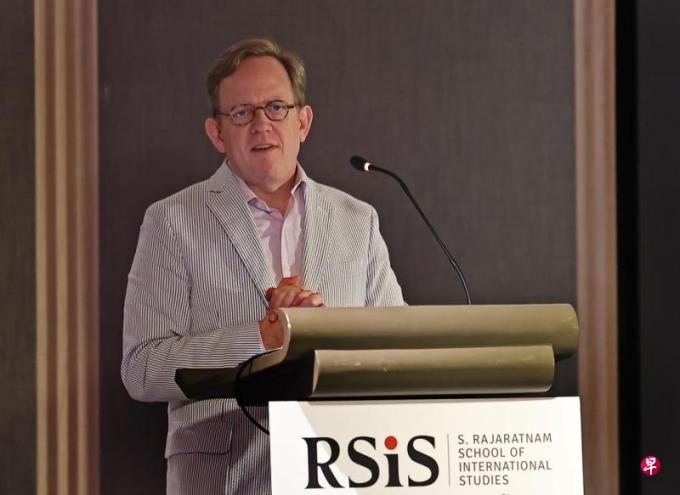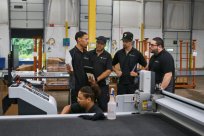
U.S. political scholar Taylor Fravel believes that the United States and China have accelerated their rotation in balance in recent years, replacing the exchanges that were originally expanded and reducing barriers, and restricted each other in the fields of military, diplomatic, diplomacy, and economy.Damage to its core interests.
He judged that the intensity of mutual balance between China and the United States in the future may also be upgraded. The world may be divided into three, including a group of countries led by the United States, a group of countries led by China, and the middle zone in which China and the United States are competing for competition.
Flavi, a professor of political science and safety research project at Massachusetts Institute of Technology, USA, on Tuesday (August 20) at a public lecture held at Nanyang University of Science and Technology Rajernan International Research InstituteIn the future and its impact on global order -Is the interactive policy of exchanges invalidated? "The topic, express the above views.
He pointed out that although the United States and China continue to contact in depth, trade investment and personnel exchanges have not returned to the level before the three -year crown disease.The two sides no longer take the policy of pursuing greater openness and mutual benefit (English).
He analyzed that the transformation of the US policy in China began in the 2010s and went through five stages: initially became aggressive due to China in the South China Sea and other places.EssenceAfter Beijing, it was also strongly targeted at and promoted the re -education camp in Xinjiang, and politicized the traceability of crown diseases.
What really shocked the United States is that in the summer of 2021, the Chinese military testing some rail bombing systems around the earth can surround the earth, leading to the policy of accelerating the adjustment of the United States to deal with China.
Flavi pointed out that China and the United States are currently focusing on mutual checks and balances, but they only do not say that they are seeking to limit each other through policy end to ensure that they will become fragile in front of the other person's strength in the future.
He pointed out that after the United States Defense Minister Austin described China as a "challenge to advance step by step" in February 2021, the way of dealing with the relationship between the United States began to have a huge change.EssenceThe United States has also launched a new checks and balance framework to form a AUKUS mechanism for the Australian and British three -sided security partnership (AUKUS). It also enhanced its military existence in this area through exercises and navigation.
China published the National Defense White Paper in 2019, accusing the United States of condemning the competition of great powers, strengthening allies' relationships against China, and expanding their vulnerability in the expansion of technical gaps and military power.Beijing began to expand nuclear military forces, and the scale of nuclear warhead inventory doubled more than 500 pieces from 2020 to 2023.This has a very important impact on any conflict between China and the United States, especially in the Taiwan Strait.
Flavi pointed out that in the past four years, the United States has used the "2+2" foreign minister and defense ministers' meeting mechanism to expand and deepen its political relationship with allies.At the same time, the Seventh Kingdoms Group (G7) and the EU allies have widely contacted China on issues in China, and established a common position in economic policies.
China has weighing the United States through three moves, including embracing Russia, differentiation of Europe, and the expansion of the BRICS countries to lead regional organizations to support China's preference.
In terms of economic balance, the Bayeng government continues the Trump administration's tariffs on China, and at the same time implement export restrictions in the field of science and technology, making it difficult for China to obtain technologies including semiconductors and other national security from the United States.China has tightened the management of the private economy in science and technology in recent years, and integrates it to state -owned departments to balance the needs of national security and development, and at the same time further increase subsidies in key areas affected by US export restrictions.Beijing has also promoted domestic demand to become a source of growth through "dual -cycle", and diversified the export market, reducing dependence in the supply chain, and realizing dependence.
Flavi believes that the mutual checks and balance between China and the United States reflects the return of politics after the Cold War. In the foreseeable future, it will continue to be the core driving force of Sino -US relations.Faced with the continuous security of various issues, the intensity of mutual checks and balance between the two countries may also be upgraded. In the future, the world may be divided into three, and third -party countries will also be under increasing pressure between China and the United States.




